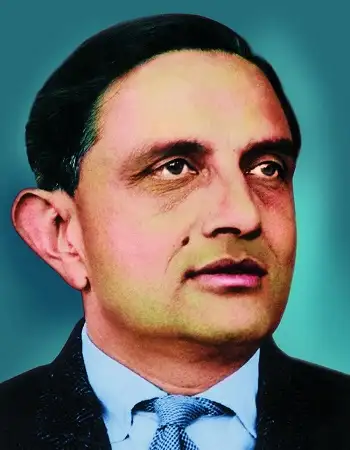India has a rich legacy of scientific excellence, with several brilliant minds who have made groundbreaking contributions to science and technology. From decoding the mysteries of light and space to laying the foundation for nuclear and space programs, these scientists have not only revolutionized their respective fields but have also placed India on the global map of innovation and research. Personalities such as like Aryabhatta from the 1st millennium, along with Charaka, Bhanbhatta, Varahamihira, Brahmagupta, Bhaskara, and Sushruta in later centuries, have profoundly shaped India’s legacy in science and medicine. Here’s a look at five Indian scientists whose pioneering work has transformed science in the country.
Born on November 7, 1888, at Tiruchirappalli in Southern India, Chandrasekhara Venkata Raman was an Indian physicist known for his work in the field of light scattering. Known for discovering the Raman Effect, which explained the scattering of light, Raman earned him the Nobel Prize in Physics in 1930. C.V. Raman, a visionary physicist, combined scientific brilliance with a commitment to social progress. In 1930, he etched his name in history as the first Asian to be awarded the Nobel Prize in Physics, marking a monumental achievement in the field.

Dr. Jagadish Chandra Bose is renowned for inventing the Crescograph, an instrument capable of recording plant growth and orbital movement down to a millionth of a millimetre. Through the Crescograph, Dr. Bose demonstrated that plants possess a circulatory system.

Additionally, he was a forerunner in wireless communication technology, conducting experiments that laid the groundwork for modern radio and microwave devices.
Born in 1909, Dr. Homi Jehangir Bhabha was regarded as the Father of the Indian Nuclear Programme. He was the founding director of the Tata Institute of Fundamental Research (TIFR) and the Atomic Energy Establishment, Trombay (later renamed Bhabha Atomic Research Centre, or BARC, in his honor).
World Student’s Day is celebrated annually on October 15 to commemorate the birth anniversary of Dr APJ Abdul Kalam, the renowned scientist and former President of India. He was not only a distinguished scientist but a motivational figure to countless students and young minds.
The former President of India APJ Abdul Kalam was born on October 15, 1931, in Rameshwaram, Tamil Nadu. He pursued his aeronautical engineering from the Madras Institute of Technology and joined the Defence Research and Development Organisation (DRDO). Kalam became India’s most famous nuclear scientist and was known as the ‘Missile Man of India’. He played a crucial role in the Pokhran-II nuclear tests in 1998.


Often referred to as the “Father of the Indian Space Program,” Dr. Vikram Ambalal Sarabhai, was a visionary scientist, industrialist, and innovator. “ISRO was previously the Indian National Committee for Space Research (INCOSPAR), set up by the Government of India in 1962, as envisioned by Dr. VikramA Sarabhai,” reads the ISRO page. Vikram Sarabhai founded the Physical Research Laboratory (PRL) in Ahmedabad on November 11, 1947.
CV Raman
Born on November 7, 1888, at Tiruchirappalli in Southern India, Chandrasekhara Venkata Raman was an Indian physicist known for his work in the field of light scattering. Known for discovering the Raman Effect, which explained the scattering of light, Raman earned him the Nobel Prize in Physics in 1930. C.V. Raman, a visionary physicist, combined scientific brilliance with a commitment to social progress. In 1930, he etched his name in history as the first Asian to be awarded the Nobel Prize in Physics, marking a monumental achievement in the field.

Dr. Jagadish Chandra Bose
Dr. Jagadish Chandra Bose is renowned for inventing the Crescograph, an instrument capable of recording plant growth and orbital movement down to a millionth of a millimetre. Through the Crescograph, Dr. Bose demonstrated that plants possess a circulatory system.

Additionally, he was a forerunner in wireless communication technology, conducting experiments that laid the groundwork for modern radio and microwave devices.
Dr. Homi Jehangir Bhabha
Born in 1909, Dr. Homi Jehangir Bhabha was regarded as the Father of the Indian Nuclear Programme. He was the founding director of the Tata Institute of Fundamental Research (TIFR) and the Atomic Energy Establishment, Trombay (later renamed Bhabha Atomic Research Centre, or BARC, in his honor).
in 1909 marks the birth anniversary of the Father of Indian Nuclear Energy, Dr. Homi Jehangir Bhabha. India’s atomic energy programme emerged from a partnership between him and JRD Tata?
— Tata Group (@TataCompanies)
Dr APJ Abdul Kalam
World Student’s Day is celebrated annually on October 15 to commemorate the birth anniversary of Dr APJ Abdul Kalam, the renowned scientist and former President of India. He was not only a distinguished scientist but a motivational figure to countless students and young minds.
The former President of India APJ Abdul Kalam was born on October 15, 1931, in Rameshwaram, Tamil Nadu. He pursued his aeronautical engineering from the Madras Institute of Technology and joined the Defence Research and Development Organisation (DRDO). Kalam became India’s most famous nuclear scientist and was known as the ‘Missile Man of India’. He played a crucial role in the Pokhran-II nuclear tests in 1998.

Vikram Ambalal Sarabhai

Often referred to as the “Father of the Indian Space Program,” Dr. Vikram Ambalal Sarabhai, was a visionary scientist, industrialist, and innovator. “ISRO was previously the Indian National Committee for Space Research (INCOSPAR), set up by the Government of India in 1962, as envisioned by Dr. VikramA Sarabhai,” reads the ISRO page. Vikram Sarabhai founded the Physical Research Laboratory (PRL) in Ahmedabad on November 11, 1947.
